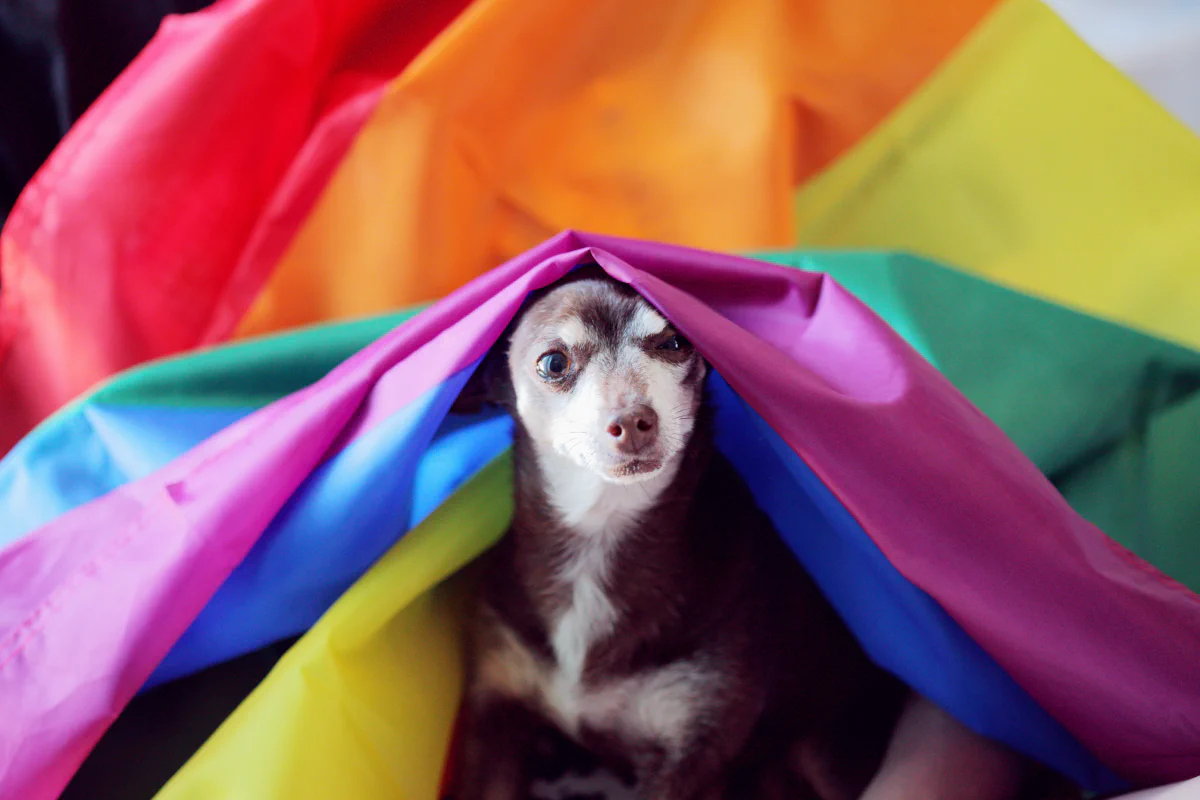On Diversity and Pride

If you follow my work, you know I love thinking about about how teams work and how to create positive change within teams.
Pride Month is here again, and it’s a great time to remember that diverse teams perform better and work smarter. Organisations and entire nations invest massive amounts of energy and capital to instil a sense of pride in their people – yet pride cannot exist without diversity, safety and genuine belonging.
As a relatively straight, cisgender, educated, affluent, white, English-speaking, middle-aged man born nearly a decade after Stonewall, I won’t pretend to know what the struggle for gay rights (let alone, power or pride) has been like or how it feels to be a marginalised minority.
Like a lot of people I was labeled a freak and a weirdo in my adolescence. I was an awkward, clumsy, poor, hippie, goth skater with a weird haircut who liked to draw and improvise piano music. I went to school first in the inner city and then at a conservative private school and received plenty of bullying in both places.
The “freak” label is one I’ve struggled to shake in my own self image and I find a lot of peace, acceptance, and inspiration from Pride Month and the queer community at large.
I’m really grateful for their example.
In my youth, I wanted desperately to fit in. Now I want to find and create spaces to belong.
Power, pride, and change
In 1970, a year after the Stonewall “riots”, a committee was formed to decide how to commemorate the event. One organiser, Craig Schoonmaker was wary of using the phrase “Gay Power”. He said, “not only did gay people NOT have any power but they couldn’t even ASPIRE to power almost anywhere. But pride was within the control of the individual, pride in himself.”
“The poison was shame,” he explained in an interview years later “and the antidote is pride.”
Pride is something we can all achieve. Pride doesn’t require anyone to give up anything. It is the first step in being authentic and allowing us to connect with each other in authentic ways. Proud people want to improve and do better, and they believe improvement is both possible and well-deserved.
Pride enables change.
“The poison was shame and the antidote is pride."
– Craig Schoonmaker
There is no more powerful tool for creating communities of people committed to positive change than by celebrating both our uniqueness and connectedness to create a sense of pride and belonging. I believe this is true whether we’re talking about professional teams, friendships, or entire societies.
Fitting in vs belonging
I’ve been born with extraordinary privilege. It’s very easy for me to “fit in” when I want to. Most people in power look and sound a lot like me. This is despite the commendable hard work and sacrifice made by hundreds of thousands of people over generations.
But “Fitting in” is very different from belonging.
“Fitting in” is an act of concealing or contorting one’s true self to align with some accepted norm for the purpose of being included by a largely indifferent group. “Belonging” requires a genuine community that celebrates both its diversity and its inclusion. It allows members to say “This is who I am and because of my uniqueness I am an important part of a community that values me.”
As Brené Brown succinctly puts it “Belonging is being accepted for you. Fitting in is being accepted for being like everyone else.” (source).
Belonging is being accepted for you. Fitting in is being accepted for being like everyone else.
– Brene Brown
Here’s a non-exhaustive list of some of the perils of fitting in and the benefits of belonging that I’ve experienced.
What’s your experience?
“Fitting in”
- creates debate and impairs understanding
- celebrates conformity
- promotes high-risk ‘groupthink’, and ‘amptssprache’
- creates a culture of shame, blame, fear, and punishment
- creates brittleness, political posturing, and factions
- discourages creativity
- perpetuates norms and standards (even when they’ve outlived their usefulness)
- weakens outcomes
“Belonging”
- creates dialogue and enhances understanding
- celebrates diverse viewpoints
- promotes a culture of inclusion, exploration, and understanding
- creates unity, empowerment, and resiliency
- promotes creativity, innovation and experimentation through emotional safety
- strengthens outcomes
Diversity, pride, vulnerability, and belonging are among the most powerful tools we share as a species to make meaningful progress together.
During Pride Month, I’m looking for ways to stay mindful of how I can encourage diverse thinking and being in the teams where I work and the communities where I live while also challenging myself when I’m being lazy and just “fitting in”. I want to notice and change course when I’m guilty of letting my privilege and personal bias steer me away from an inclusive conversation that could enhance my understanding.
Helping everyone to shine can be a source of pride for all of us.

